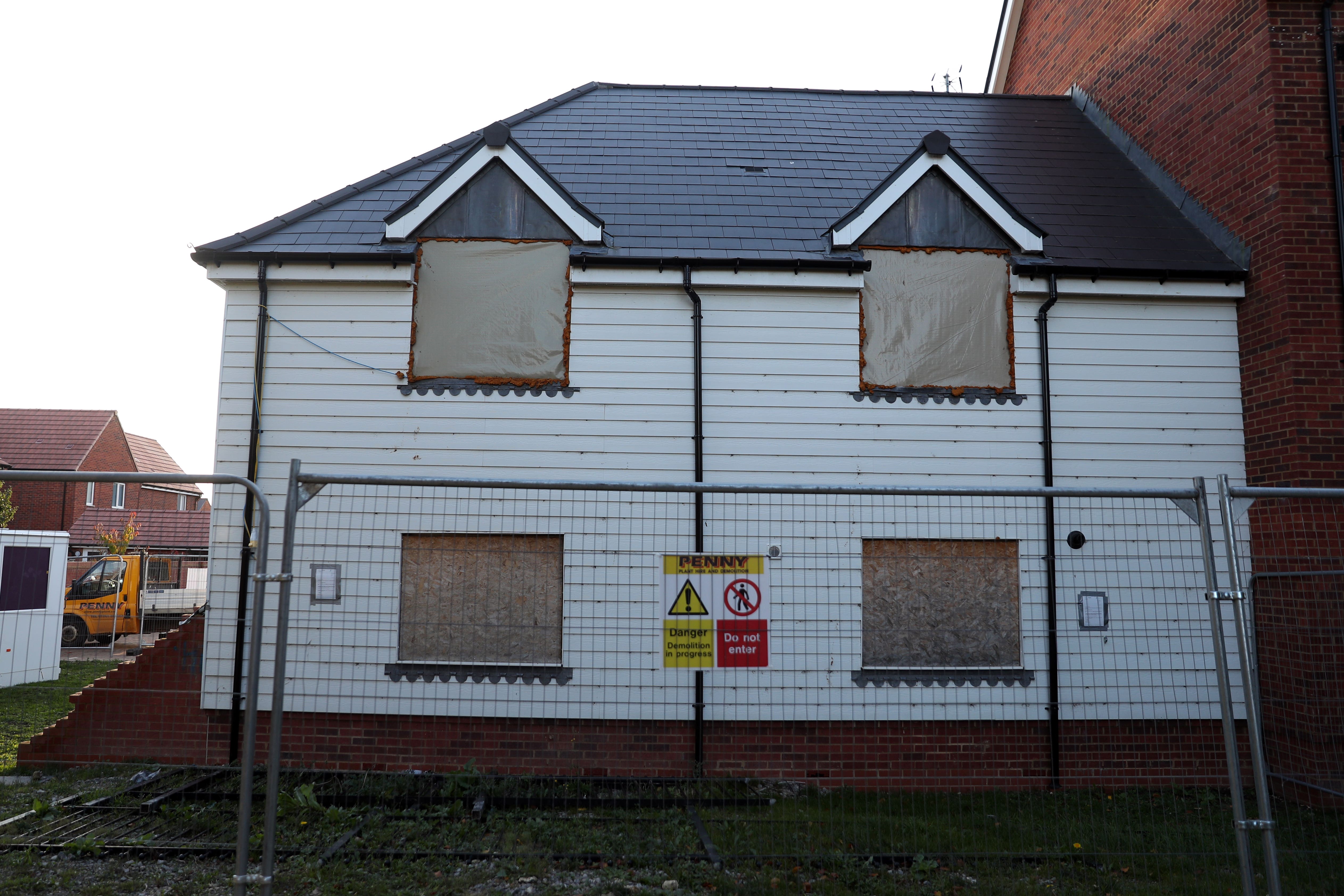Paramedic describes finding Dawn Sturgess blue and not breathing on the floor
Dawn Sturgess died after she was exposed to the chemical weapon, which was left in a discarded perfume bottle in Amesbury, Wiltshire, in July 2018.

Your support helps us to tell the story
From reproductive rights to climate change to Big Tech, The Independent is on the ground when the story is developing. Whether it's investigating the financials of Elon Musk's pro-Trump PAC or producing our latest documentary, 'The A Word', which shines a light on the American women fighting for reproductive rights, we know how important it is to parse out the facts from the messaging.
At such a critical moment in US history, we need reporters on the ground. Your donation allows us to keep sending journalists to speak to both sides of the story.
The Independent is trusted by Americans across the entire political spectrum. And unlike many other quality news outlets, we choose not to lock Americans out of our reporting and analysis with paywalls. We believe quality journalism should be available to everyone, paid for by those who can afford it.
Your support makes all the difference.A paramedic has described finding Dawn Sturgess lying on the floor, blue and not breathing, after she was poisoned with Novichok, the inquiry into the circumstances of her death heard.
The 44-year-old died after she was exposed to the chemical weapon, which was left in a discarded perfume bottle in Amesbury, Wiltshire, in July 2018.
It followed the attempted murders of former spy Sergei Skripal, his daughter Yulia and then-police officer Nick Bailey, who were poisoned in nearby Salisbury in March that year.
All three survived, as did Ms Sturgess’s boyfriend Mr Rowley, who had unwittingly given her the bottle containing the killer nerve agent.
Paramedic Mark Marriott said: “I collected my equipment, as I arrived at the door, the door was open, I shouted hello. I heard a male voice say ‘up here’. I walked up the stairs, I turned to the right, I didn’t smell anything in the air.”
He said he saw a female patient lying on her back on the floor of the bathroom and said to the male in the house “what happened?”, and he replied “she collapsed”.
Mr Marriott said he noticed Ms Sturgess’s skin was “very blue”, adding “that would indicate a lack of, or no, blood flow”, and that she was not breathing.
He said he would have bent down or knelt down to feel for a pulse and his initial assessment was that she was in cardiopulmonary arrest, so started basic life support.
Mr Marriott said Mr Rowley told him Ms Sturgess was complaining of a headache and was going to have a bath when he heard a noise, “like she was gurgling”, so went in and found her collapsed in the bathroom.
Mr Marriott told the inquiry: “So, while doing the compressions, I said to the male partner, ‘are you the partner?’ and he replied, ‘yes’.
“I said ‘what happened?’, he replied, ‘she was complaining of a headache and she was going to have a bath, I heard a noise that sounded like she was gurgling, I went in and found her collapsed in the bathroom, she was foaming at the mouth’.
“I asked the male partner ‘when did she collapse?’ and he replied ’10 to 15 minutes ago’. He was quite flustered and he seemed a bit jittery, quite muddled in himself.”
The paramedic said at this point he thought it was a cerebral incident, possibly a stroke.
He turned on a portable defibrillator and attached it to Ms Sturgess, which gave him “a verbal indication of no shock indicated”, so he carried on with compressions, which is when his colleagues from the ambulance service arrived.
The paramedics continued life support on Ms Sturgess and at one point the defibrillator indicated she was “shockable”, and it was delivered, then he could see a pulse. The critical care paramedics later arrived, the inquiry heard.
Advanced technician Keith Coomber told the inquiry he administered naloxone to Ms Sturgess – in case she was suffering from an opiate overdose, but said he did not notice if it had any effect on her as he was busy.
He added that if the patient had not had an opiate overdose “it’s not going to do anything bad but it’ll help reverse … if it was”.
The inquiry continues.